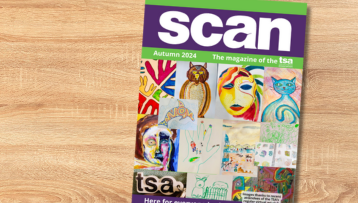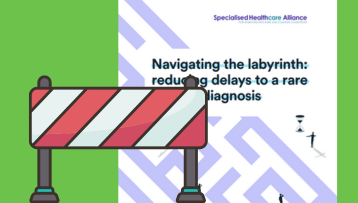Everolimus granted European Licence for renal AML
Everolimus (trade name Votubia®) has been approved by the regulators for use in the European Union for the treatment of angiomyolipomata (AMLs) in adults with TSC, when embolisation or surgery is not immediately needed.
Everolimus belongs to a class of drugs known as mTOR Inhibitors that have been shown to be effective at shrinking some growths due to tuberous sclerosis complex (TSC).
The drug Sirolimus showed promise in early trials and then Everolimus (Votubia®) was proven to work, first for SEGAs in the EXIST-1 and now for AMLs in the EXIST-2 studies. Both these studies were multinational, randomised, placebo controlled clinical trials.
Licenses are granted if the drug has been shown to work in clinical trials and if its side-effects are considered to be acceptable, and outweighed by the benefit of the drug. In granting a licence for Everolimus to treat AMLs the EMA considered evidence from the EXIST-2 clinical trial. This study tested the drug in people with TSC who were 18 or over and who had at least one AML larger than 3 cm. Almost all patients who took Everolimus showed stabilisation or some shrinkage of their AMLs. In 80.3% the shrinkage was > 30%
Who should consider this treatment?
Treatment with Everolimus may be considered for anyone over 18 years old who has AMLs that are causing problems, e.g. due to size, pain or previous bleeding; or in whom the AMLs are likely to cause problems in the near future (AMLs greater than 3 cm that are still growing). Everolimus is not licensed for people younger than 18 years of age because clinical trial evidence for this age group is not currently available. In certain circumstances Everolimus may be prescribed “off-licence” for children and young people under the age of 18 years.
The best treatment for any individual needs to be carefully considered by a TSC kidney expert. Before making a decision, the specialist will take into consideration the exact nature of the problems the patient is experiencing and all their other circumstances.
If you would like to find out whether Everolimus might be a suitable treatment for yourself or a person with TSC for whom you care, you should ask to be referred by your GP to a TSC clinic, kidney specialist or paediatrician.
Everolimus has not been assessed by the National Institute for Health and Clinical Excellence (NICE). This means that decisions on whether Everolimus can be prescribed on the NHS will be made at the local level. Requests for funding for Everolimus to treat kidney AMLs would need to be made by your specialist.
The TSA welcomes the option of a drug treatment where formerly the only treatment available was an operation, and is committed to ensuring that it is accessible to all those with TSC who could benefit from it.
Dr J. C. Kingswood
Consultant Nephrologist
TSA Head of Research Strategy









































































































































